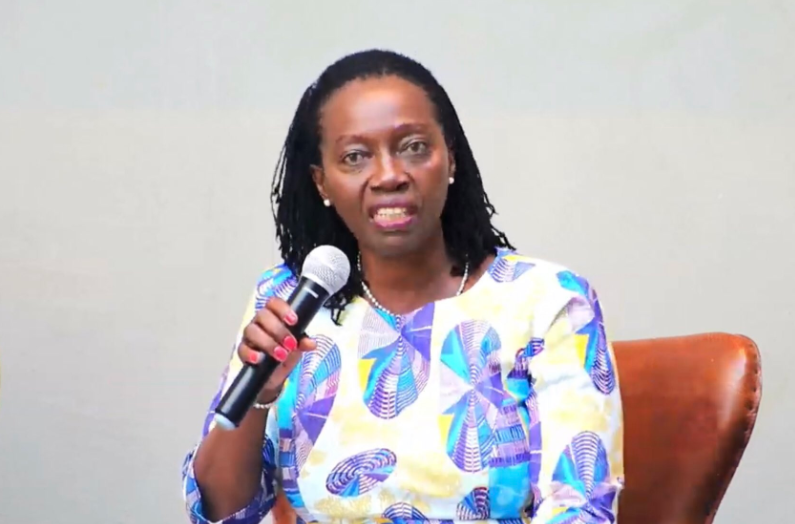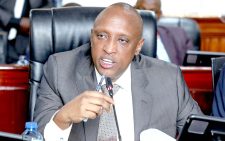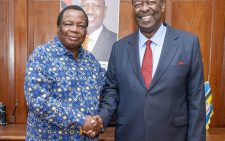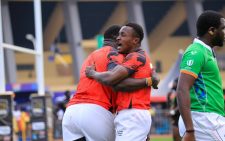Bearing a woman’s name in a man’s body
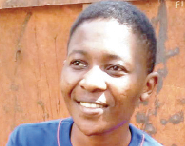
Their bodies do not conform to other people’s expectations about sex and gender. This is a complex biological condition where children are born either with two sex organs (male and female) or one visible organ while the other is either hidden, malformed or deformed, but present. They are known as intersex.
Globally, intersex persons are estimated to be between 0.5 per cent to 1.7 per cent of any given population.
The 2019 census data showed there are 1,524 intersex persons in the country representing 0.003 percent of the population,
For 27 years, Gloria Luhunga who hails from Muhudu ward in Hamisi sub-county has experienced a lot of stigma and discrimination.
“I have been a victim of stigma and discrimination as an intersex person. It was worse during my school days. I was not able to participate in games as a girl because they took me as a man among women. I used to take baths alone for fear of being abused by my fellow students,” says Gloria.
She shares how acquiring documents such as a passport is a big headache to intersex people.
“Acquiring travelling documents is a big challenge. You present your National Identification Card and it reads Gloria, but when they look at you, they see a man in you,” she laments.
“Because of the challenges I have been going through and still going through for example in banks, M-Pesa, ATM , Standard Gauge Railway (SGR) terminal in Nairobi and Mombasa, police stations, Kazi Mtaani, Huduma Centres among other areas, I intend to change my name and get a man’s name,” Gloria reveals.
She adds, “Due to the confusion and mis-match between my name and physical characteristics or appearance, I feel I am tired of explaining my intersex status whenever I seek services. Thus the need to undergo the name change process.”
Progressive milestones
Gloria who has been working at the Kenya National Commission on Human Rights (KNCHR) since July 2021 has been raising awareness and calling for the protection of the rights of intersex people.
She reveals that the commission is working closely with the Intersex Persons Implementation Coordination Committee (IPICC). She acknowledges that in Kenya, progressive milestones have been recorded through the signing into the law, the Children’s Act of 2022 ,which recognises the existence of intersex children and their protection.
She is happy that the KNCHR is currently engaging the Office of the Registrar of Births and Deaths, with a view to support the implementations of the Children’s Act and ensure each intersex child gets the correct birth certificate.
“It is important to note that the previous practice of applying binary sex markers in the registration documents, starting with the birth notification and birth certificates was the beginning of untold suffering, violations and abuses of an intersex baby. It is notable that the rights to acquire a name and nationality, as well as registration document, is recognised in our Constitution and other international laws, conventions and treaties that Kenya is a signatory. Similarly, intersex children are protected from any form of discrimination by our Constitution as espoused in Article 27,” says Gloria.
Fighting for inclusion
Gloria is calling upon government officers at county and national level, the civil society organisations, religious institutions and private institutions that offer services, to ensure that there is inclusion of intersex children and adults in their service provision charters.
She says, “In this age and era, it is unfair to hear cases of intersex children who drop out of school because they are unable to fit in the school system due to intimidation, bullying, social stigma, poor policies and ignorance. It is good for the schools and community to look into better ways on how best to accommodate such learners.”
To sensitise other intersex people on how they can live positively, Gloria enrolled for a diploma in psychological studies.
“I have been meeting with the intersex people, giving them guidance and counseling on how they can live their life to the fullest. Some live in fear, feel inferior, among other issues. I tell them to live like any other person and they should join this fight against stigma and discrimination,” says Gloria.
Gloria is grateful her family has been supportive and they understand her physical challenges.
Dating a woman
While she is not married, Gloria reveals that between 2014 and 2016, she wanted to have a child. “Unfortunately, the doctors said I have a small womb and I cannot carry a pregnancy to term,” she reveals.
Currently, she reveals she does not have any feelings for men and is dating a woman. Intersex people often have similar experiences to lesbian, gay, bisexual, transgender, intersex, queer/questioning, asexual and many other terms such as non-binary and pansexual and confront many of the same challenges.
Intersex identification
Though some intersex individuals identify with intersex as their gender, the majority don’t — they may identify as male, female, non-binary, or a different gender. Intersex individuals may also be transgender if they do not identify with the gender with which they were raised. Some intersex people may also identify as LGBTQ+.
While some have surgeries to correct their ambiguous genitalia as adults, some are performed when the children are young.
“I have never considered going for correctional surgery. But when the right time comes and I want to have a child, I shall have this discussion with my partner,” she shares.
